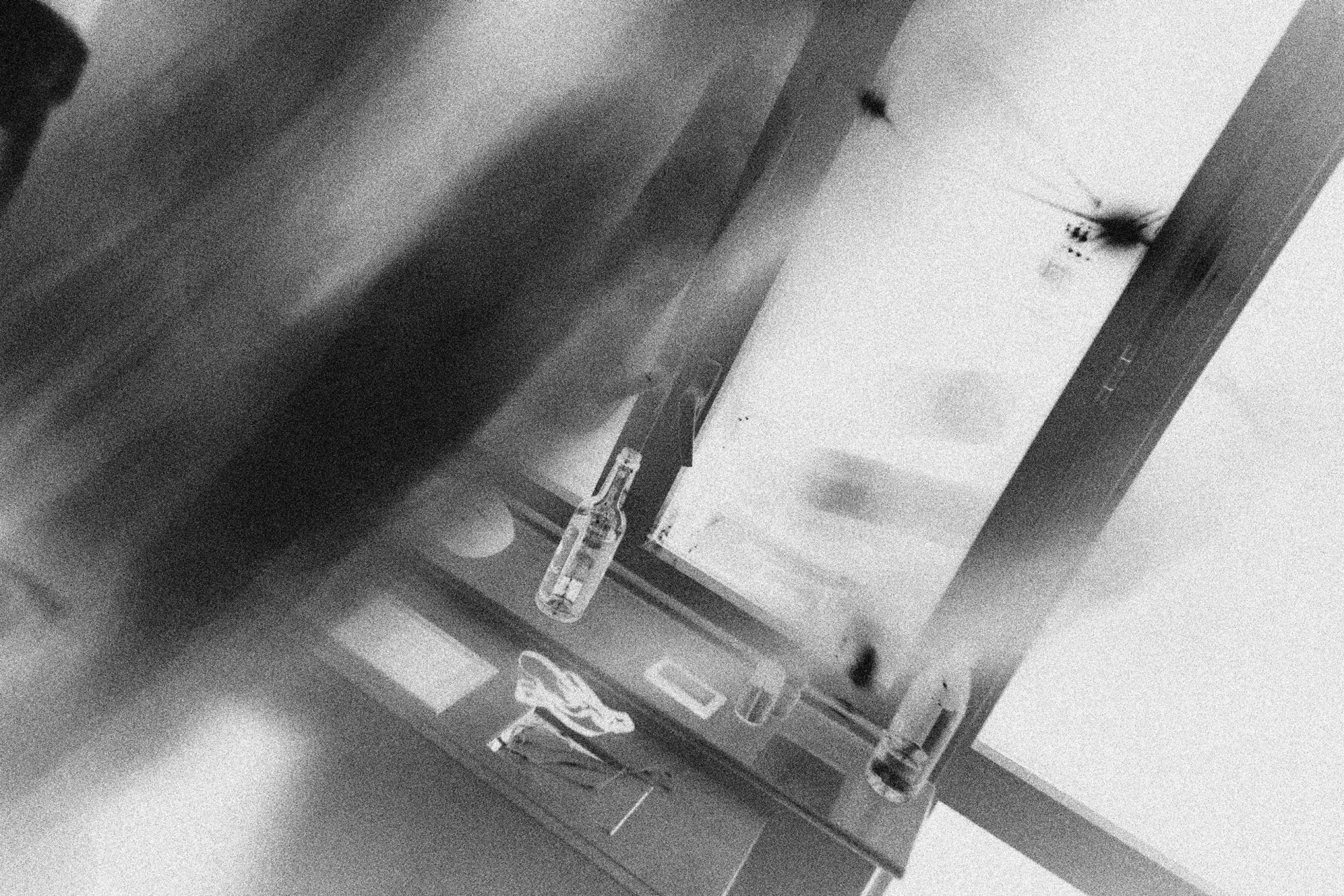Through the wooziness, medications, and sickness, it took me a while to finally grasp what he was saying. I figured it was nighttime when I woke up because everyone was sleeping and all the lights except for one were off. A low-hanging, dim light shined near the bathrooms. I could see a shadow of a woman with scraggily hair standing by one of the sinks. I unhooked myself from my machines and walked over there. I knew exactly who she was.
I tried not to stumble over the people as I walked over. I was doing my best not to step on anyone’s hands, feet, or hair when I noticed Ryan’s mom lying down on a broken cot. Her breathing was slow and shallow, but her eyes were opened. They looked up at me as I walked up to her. “Chelsea?” she breathed. “Is that you?” I nodded and kneeled down beside her. I looked over to see if the shadow was still there, and it was.
“I didn’t know you were in here, Mrs. Hale.” I whispered to her. She had dark bags under her eyes, and it looked like she hadn’t eaten or slept in days. “Is Mr. Hale here as well?” I asked, but she didn’t answer me. “Can you hear her laughing?” she asked me. I didn’t hear anything. “Can I hear who laughing?” I asked. “Kayla,” she answered. She didn’t even have to think about it. “Ryan’s sister?” I asked.
Mrs. Hale sat up. “She follows me around. I see her everywhere. Ever since I got sick. She follows me.” The only way to not be sick is to get rid of illusion. She started shaking and I grabbed her by the shoulders. “You have to let her go. That’s the only way you’ll get better.” I laid her back on her cot, and after a few minutes she closed her eyes. I turned back around and the shadow was gone, but I knew the woman was near. I walked into the communal bathrooms. It was divided into two sections—men’s and women’s—and a flimsy wall divided its entirety from the rest of the room. I heard the rocking sound again, like the time at the cottage, and followed it. There was shuffling in one stall. A low rustle, like something was trying to be discreet. I walked up to the stall next to it, pretending I was going to open that one. My heart pounded, my cheeks felt flushed.
I held my breath and kicked in the stall door, but nothing was there. A stall door at the other end of the room slammed shut. I slowly crept over. Every step I took was like a bowling ball being dropped on the floor. I had to slow my breathing to stop myself from panting. I was about to open the door when another one opposite of me slammed. One by one, they all slammed shut. The sinks turned on full blast, quickly overflowing. The light flickered. The woman started laughing, but I couldn’t tell which stall she was in. Get rid of illusion. I kicked in two stall doors to no avail. I went into the second and kicked the toilet paper dispenser until it detached from the wall. I picked it up, determination coursing through my veins. The laughing got louder, and I followed it until I reached the last stall.
I forced open the door, but the woman wasn’t there. “Boo!” I turned around to find the woman cackling behind me. She reached out and tried to scratch me, but I knocked her arm away. I bashed her with the toilet paper dispenser and she fell to the floor, still cackling. She lunged for me and I whacked her again. I hit her again and again, until she was nothing more than a green, bubbling puddle on the floor.
Two weeks later, after they took a blood test, a nurse placed a mask over my face and escorted me out of quarantine. The other patients moaned and hollered, but we did our best to ignore them. The crazy woman next to me had croaked right before the blood test. That morning, when she woke up, she looked up at me and told me she could never get rid of illusion. “How would you know what is real?” she asked. Within a few minutes she was gone.
I walked through town, still in my patient robe and slippers, my bag of possessions they had found me with tucked under my arm. I passed the coffee shop Ryan and I frequented downtown and the boutique he died in front of. I passed my high school, his house, and mine. I passed the old cottage, the fallen willow tree, and the cobblestone paths. I walked straight down the main road until I came to the edge of town. Not once did I see a living soul.
I kept walking until I knew I was far enough away.
I stopped at a diner, about twenty miles outside of town. A crinkled ten dollar bill sat at the back of my wallet and I knew that would be enough. A sweet, curly-haired woman waited on me and the diner had a small-town, family-owned feel to it. The floor was tiled with black and white checkered tiles, the walls were painted pink on the upper half and blue on the lower, and they had pictures of racecar drivers plastered on the walls. One wall had Polaroid pictures of all of their employees. I saw a picture of the boy who was cleaning the table next to mine, of the lady waiting on me, and one towards the bottom was of Frank. He had the same wild look in his eye and he still looked like he needed a bath, but there was something knowing about his smile. And I looked down at my stack of pancakes and smiled the same way. ![]()
